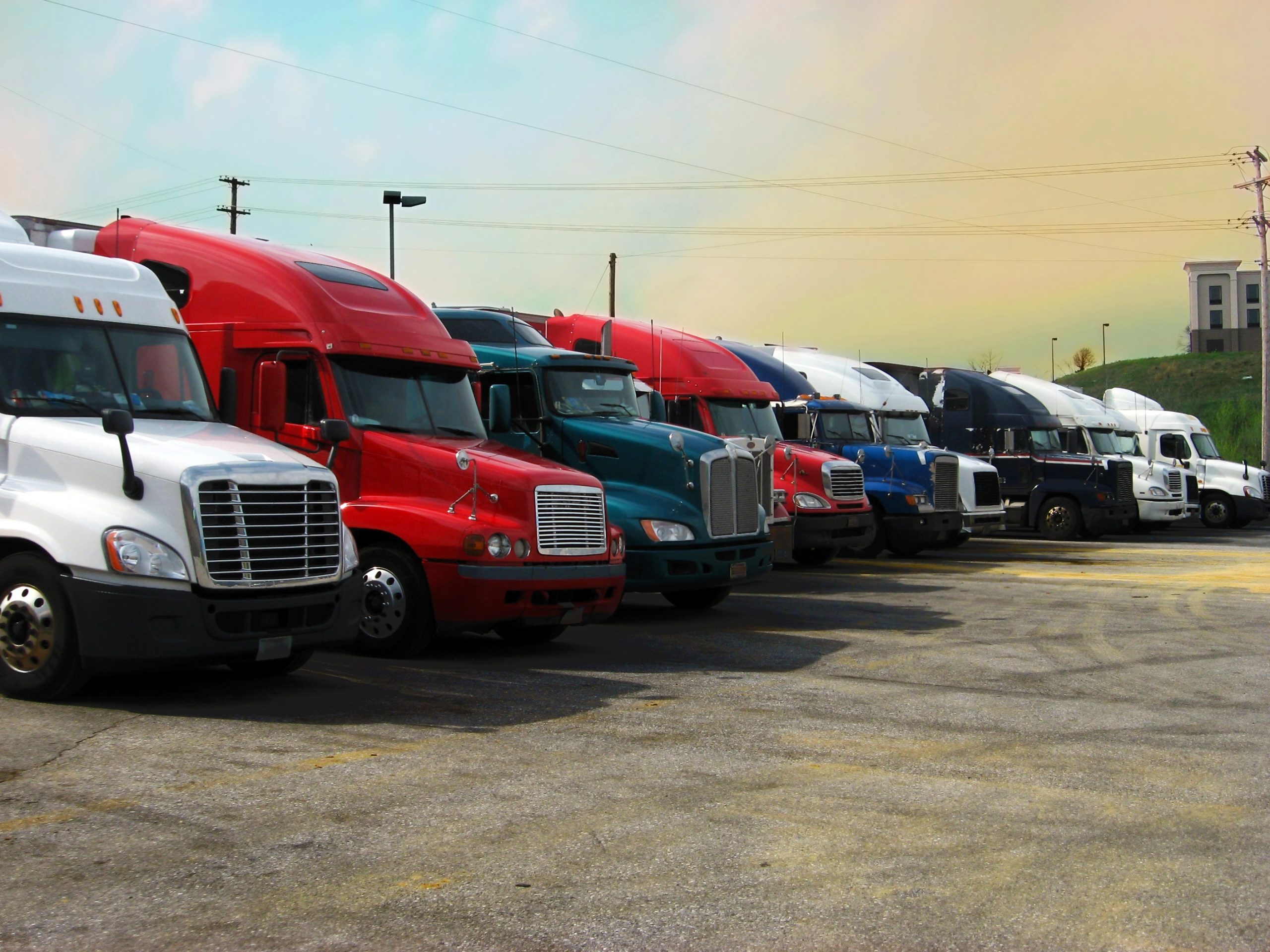
If you operate a fleet of commercial vehicles, ensuring compliance with the Federal Motor Carrier Safety Administration (FMCSA) regulations is essential. One crucial aspect of compliance is the use of FMCSA approved Electronic Logging Devices (ELDs). In this article, we will explore the importance of FMCSA approved ELDs and how they help you meet compliance standards. We will also discuss key features to look for when choosing an ELD and the consequences of non-compliance.
Understanding the Importance of FMCSA Approved ELDs
In today’s transportation industry, ELDs play a vital role in ensuring accurate and reliable record-keeping of a driver’s hours of service (HOS). These devices electronically capture and retain the necessary data to enforce federal regulations. By using FMCSA approved ELDs, you can have peace of mind knowing that your fleet is compliant with the latest industry standards.
The Role of ELDs in the Transportation Industry
ELDs are not just fancy gadgets; they are powerful tools that enhance safety and efficiency in the transportation industry. These devices automate the recording of a driver’s HOS, reducing the risk of human error and falsification of records. By accurately tracking and reporting driving hours, ELDs empower both drivers and fleet managers to make informed decisions that prioritize safety and compliance.
Moreover, ELDs provide real-time visibility into a driver’s status, allowing fleet managers to optimize routes, schedules, and rest breaks. This level of transparency helps improve operational efficiency and customer satisfaction. Additionally, ELD data can be utilized to identify areas for driver training and performance improvement, leading to a more skilled and safer workforce.
Why FMCSA Approval Matters
FMCSA approval signifies that an ELD meets the stringent standards set forth by the regulatory body. Compliance with these standards ensures that the device accurately records and stores HOS data, provides necessary reports, and adheres to data transfer protocols. Choosing an FMCSA approved ELD is vital to avoid costly penalties and potential disruption to your operations.
Furthermore, FMCSA approved ELDs undergo rigorous testing to validate their accuracy and reliability. These devices are designed to withstand the demanding conditions of the transportation industry, ensuring consistent performance in various environments. The approval process also involves verifying that the ELDs have adequate security measures in place to protect sensitive data, safeguarding both the driver’s information and the integrity of the system as a whole.
Key Features of FMCSA Approved ELDs
When selecting an ELD for your fleet, it’s essential to consider the key features that contribute to FMCSA compliance and operational efficiency.
Ensuring that your fleet is equipped with FMCSA approved Electronic Logging Devices (ELDs) is crucial for maintaining compliance with federal regulations and optimizing operational processes. These advanced devices offer a range of features designed to streamline data collection, enhance driver safety, and facilitate efficient reporting.
Compliance with Hours of Service (HOS) Regulations
An FMCSA approved ELD should provide robust functionality to track and report a driver’s HOS, including driving, on-duty, and off-duty time. The device should have built-in alerts to prevent violations and provide clear visibility into each driver’s status.
Moreover, modern ELDs often come equipped with intuitive interfaces and user-friendly dashboards that allow drivers and fleet managers to easily monitor and manage HOS compliance in real-time. By automating the tracking and reporting of HOS data, these devices help reduce the risk of errors and ensure accurate record-keeping.
Data Transfer Capabilities
The ELD should support secure and seamless data transfer to authorized parties when required. Compliance requires the ability to transfer accurate and tamper-proof data, helping authorities efficiently verify compliance during inspections.
In addition to data transfer capabilities, many FMCSA approved ELDs offer advanced features such as GPS tracking, geofencing, and predictive maintenance alerts. These functionalities not only assist in regulatory compliance but also contribute to improved fleet management, driver performance, and overall operational efficiency.
The Process of Getting FMCSA Approval
Obtaining FMCSA approval for an Electronic Logging Device (ELD) is a multifaceted and intricate process that demands meticulous attention to detail. Manufacturers seeking FMCSA approval must navigate through a series of rigorous testing and certification procedures to demonstrate full compliance with FMCSA regulations. The journey towards approval is a critical step in ensuring that the ELD accurately records and securely stores Hours of Service (HOS) information, a vital component in enhancing road safety and regulatory compliance within the transportation industry.
Manufacturers embarking on the FMCSA approval process must be prepared to invest significant time and resources into meeting the stringent requirements set forth by the regulatory body. This includes not only the initial testing and certification procedures but also the ongoing commitment to maintaining compliance post-approval to guarantee the continued reliability and accuracy of the ELD.
Testing and Certification Procedures
ELD manufacturers must meticulously prepare their devices for evaluation by FMCSA-approved testing laboratories. These laboratories conduct comprehensive assessments to scrutinize the technical capabilities, data transfer protocols, and overall functionality of the ELD. Only devices that successfully meet the exacting standards and requirements outlined by the FMCSA will be granted the coveted approval, signifying their adherence to industry best practices and regulatory mandates.
Furthermore, the testing and certification procedures serve as a critical checkpoint in the development and deployment of ELDs, ensuring that these devices not only meet the minimum regulatory requirements but also deliver on their promise of enhancing operational efficiency and safety for commercial motor vehicle operators.
Maintaining Compliance Post-Approval
Securing FMCSA approval is just the beginning of the journey for ELD manufacturers, as the responsibility to uphold compliance extends far beyond the initial approval process. Manufacturers are tasked with the ongoing duty of promptly addressing any software updates, bug fixes, or emerging regulatory requirements to uphold the integrity and accuracy of the ELD. Continuous compliance efforts are essential to safeguarding the reliability and effectiveness of the ELD throughout its operational lifespan, underscoring the manufacturer’s commitment to upholding the highest standards of quality and regulatory adherence.
By navigating through the intricate process of obtaining FMCSA approval and diligently maintaining compliance post-approval, ELD manufacturers play a pivotal role in shaping the future of transportation technology and promoting a culture of safety and efficiency within the commercial trucking industry.
Choosing the Right FMCSA Approved ELD for Your Fleet
Selecting the right FMCSA-approved ELD for your fleet is a crucial decision. Ensuring compliance with FMCSA regulations is not only a legal requirement but also essential for the safety and efficiency of your operations. By investing in a reliable ELD system, you can streamline your fleet management processes and enhance overall productivity.
When evaluating ELD providers, it is important to conduct thorough research to make an informed choice. Look for providers with a proven track record of compliance and customer satisfaction. Consider factors such as the provider’s experience in the industry, the reliability of their technology, and the quality of their customer support services. Opt for a provider that is known for addressing any technical issues promptly and efficiently.
Evaluating ELD Providers
Research different ELD providers thoroughly to ensure they have a track record of compliance and customer satisfaction. Look for providers that offer robust customer support and have a reputation for addressing any technical issues promptly. Additionally, consider the scalability of the provider’s solutions to accommodate your fleet’s growth and evolving needs.
Considering Your Fleet’s Specific Needs
Every fleet has unique operational requirements that must be taken into account when selecting an ELD system. Factors such as the size of your fleet, the types of vehicles you operate, and the geographical scope of your operations can all impact the choice of ELD. Evaluate the technology integration capabilities of the ELD system and ensure it aligns with your fleet management software and other operational tools. Choose a provider that offers customizable solutions to meet your specific needs and provides ongoing training and support to ensure a smooth transition to the new system.
The Impact of Non-Compliance
Failure to comply with FMCSA regulations regarding ELD usage can have severe consequences for your fleet.
Ensuring compliance with Federal Motor Carrier Safety Administration (FMCSA) regulations is essential for the smooth operation of your fleet. Non-compliance can lead to a range of issues that can negatively impact your business and reputation within the industry.
Potential Penalties and Fines
If caught using a non-compliant device or operating without an ELD when required, you may face significant penalties and fines. These financial obligations can quickly add up and impact your bottom line.
Penalties for non-compliance can vary depending on the severity of the violation and the number of offenses. In addition to fines, your fleet may also face increased scrutiny from regulatory authorities, leading to potential audits and further financial repercussions.
The Long-Term Consequences of Non-Compliance
Non-compliance with FMCSA regulations can also result in long-term consequences such as increased insurance premiums, negative impacts on your safety rating, and potential loss of trust from customers. It’s important to prioritize compliance to maintain a positive reputation and thriving business.
Insurance companies often view non-compliance as a risk factor, which can lead to higher premiums for your fleet. Additionally, a poor safety rating can limit your ability to secure new contracts and partnerships, further hindering the growth and success of your business.
Building a reputation for reliability and adherence to regulations is crucial in the competitive transportation industry. Customers value transparency and accountability, making compliance with ELD regulations a key factor in maintaining strong relationships with clients and partners.





